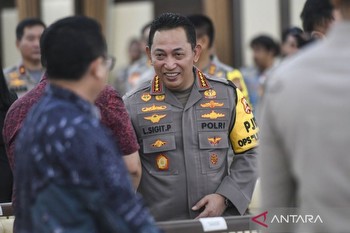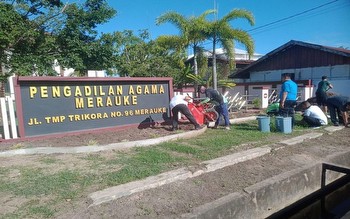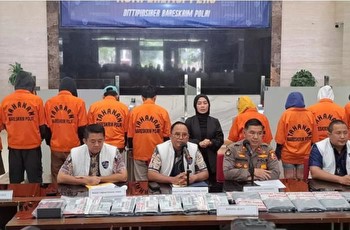Indonesia’s civil servants, lawmakers in the grip of online gambling

JAKARTA – The nation’s online gambling controversy has deepened following reports that Indonesians from all walks of life have become addicted to the practice, including some civil servants and lawmakers.
Over the past few weeks, President Joko “Jokowi” Widodo’s administration has been scrambling to discourage people from engaging in online gambling, which is thought to have already affected 4 million Indonesians with an estimated total transaction value of around Rp 600 trillion (US$36.6 billion).
Gambling of all types, both online and offline, is punishable by a prison term in Indonesia, as is organizing a gambling event.
But online gambling sites are often advertised with attractive graphics on websites, making them seem like any other online game. Complicating enforcement, online gambling platforms are not commonly found on official application stores but are rather downloaded online in the form of file extensions.
Financial Transaction Reports and Analysis Center (PPATK) head Ivan Yustiavandana said on Wednesday that more than 1,000 members of the national and regional legislatures had been gambling online.
“We found 63,000 transactions related to online gambling. In terms [of its nominal value], it has reached almost Rp 25 billion,” Ivan said during a meeting on Wednesday with House of Representatives Commission III overseeing legal affairs.
He said the PPATK had found indications that some lawmakers had individually deposited billions of rupiah in online gambling sites.
Responding to the report, House Commission III deputy head Habiburokhman of the Gerindra Party urged the PPATK to disclose the names of the implicated lawmakers, adding that they would face sanctions from the House ethics council.
An undisclosed number of civil servants, as well as National Police and the Indonesian Military (TNI) personnel, had also engaged in online gambling, according to Coordinating Political, Legal and Security Affairs Minister Hadi Tjahjanto, who heads a newly established interministerial task force to curtail online gambling.
“When it comes to various ministries, the police and the TNI, we have handed [the alleged gamblers’] names to their respective heads,” Hadi said, as quoted by tempo.co.
Administrative and Bureaucratic Reform Minister Abdullah Azwar Anas and Home Minister Tito Karnavian warned civil servants and regional administration heads that they could face disciplinary sanctions for gambling.
In recent months, several cases of military and police officers allegedly ending their lives or committing crimes over online gambling debt have grabbed national attention.
In late May, a member of the Indonesian Navy allegedly took his own life in Papuan Highlands province over mounting debt from an online gambling problem. An apparently similar incident happened just weeks later on June 4, when an Army soldier was found dead in Bogor, West Java.
Also in June, a second lieutenant at an army infantry brigade in Sulawesi, identified only by his initial R, was accused of having stolen some Rp 876 million from the brigade’s budget to gamble online.
A policewoman in Mojokerto, East Java, recently set her husband on fire, reportedly because he had a gambling problem that had left them struggling financially.
Down to rural communities
At the Wednesday press conference, Hadi said that online gambling has penetrated down to rural communities and that almost none of the country’s 38 provinces were free from the grip of online betting.
According to data from the task force, West Java had the highest number of people engaging in online gambling, followed by Jakarta, Central Java, East Java and Banten.
Making matters worse, 2 percent of people who gambled online in the country were under the age of 10, and 11 percent were aged 10 to 20.
The new figures come amid reports of theft linked to gambling addiction in teenagers and adults emerging across the country this year.
“[To combat this], we will carry out an extensive campaign with a focus on educating [people] about the risks of gambling addiction. It can be done formally through schools or informally as well,” Hadi said.
The task force is also looking to work with public figures, religious leaders and local communities, such as Karang Taruna youth groups and the women-run Family Welfare Movement (PKK), as well as regional administrations and ministry offices at the regency and city levels.
“We will urgently gather village and subdistrict heads [to take part in the public awareness campaign]. They must take responsibility that their area and people have become an online gambling den. [The government] will provide them with names, telephone numbers and addresses [of online gamblers],” Hadi said.

























